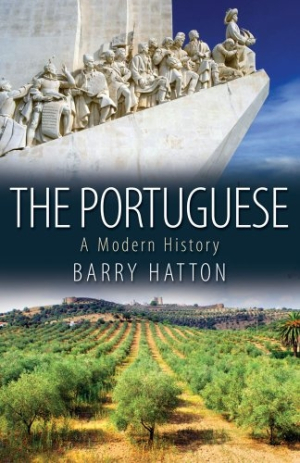The Portuguese
A Modern History
Portugal is Europe’s poorest nation as well as its least well known. This galls the author, who spent twenty years as an AP foreign correspondent in Lisbon, and this book, a mixture of history, tour guide, and national character analysis, is clearly a labor of love. An empire that squandered its gold instead of investing it, Portugal today struggles to rebound from centuries of poor fiscal management, political isolation, and underinvestment in human capital. However, it is also a nation with a stunning countryside, close-knit communities, and a cheerful insouciance in the face of what many Portuguese view as their inevitable ineptitude and bad luck.
By the fourteenth century, Portugal’s naval success against Muslim corsairs evolved into navigation and conquest. Their caravels could outrace the fleet of any other nation, and the potent combination of adventure, trade, and Christianizing enabled Portugal, for a time, to rival the empires of much larger and more powerful nations. As slaveholders, they ran vast plantations in South America, and huge quantities of gold were sent home to fill the royal coffers. However, as Hatton puts it, “the Age of Discovery also brought complacency.” Its carefree opulence epitomizes “the Portuguese character, [which] never wanted for energy or the audacity to hurl themselves into the hardest tasks … What we have almost always lacked are less poetic qualities and methodical action, gradual and persevering effort.”
Portugal’s burgeoning empire spread its forces too thinly, and it relied on past glory instead of investing its riches in “productive capacity at home,” leaving it ever farther behind in the quest for global domination. Of its two neighbors, Spain and the Atlantic Ocean, “one of them was long viewed as a risky prospect, treacherous and dangerous; the other was wet.” This combination fostered an “island mentality” that prompted Portugal to ally itself with Spain’s arch-nemesis, England, a situation that only changed temporarily when their two fascist leaders, Franco and Antonio Salazar, found common cause.
Salazar’s opposition to development kept his nation an economic backwater, leaving it to emerge from the Carnation Revolution of 1974 as the most illiterate and least developed nation in Europe. Its entry into the European Union and early acceptance of the euro provided a temporary lift, but the country still faces a daunting task. Ever impecunious, the Portuguese remain prone to overspending and underinvesting; tourism, capitalizing on wondrous rural vistas, is their most reliable industry. Now, however, “the EU Generation” is the best educated and most globally-focused that Portugal has ever seen, and there is every reason to hope that their ingenuity and multi-national networks will flower like the “ancient olive trees you come across in the country—bent out of shape by bigger forces, flawed and suffering, but robustly surviving with an unusual beauty.”
Reviewed by
Elizabeth Breau
Disclosure: This article is not an endorsement, but a review. The publisher of this book provided free copies of the book to have their book reviewed by a professional reviewer. No fee was paid by the publisher for this review. Foreword Reviews only recommends books that we love. Foreword Magazine, Inc. is disclosing this in accordance with the Federal Trade Commission’s 16 CFR, Part 255.

